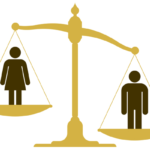The National Women Leader of the All Progressives Congress (APC), Dr Mary Idele Alile, has said that only 6 per cent of women in Nigeria hold political office.
Dr Mary made the statement during her speech at the launch of “Project 774 Explode: Enhancing Gender Space in Politics” in Sokoto over the weekend.
According to a statement from her office, she praised President Bola Ahmed Tinubu for his efforts in changing the narrative through the deliberate appointment of women to sensitive and influential positions.
She also commended Governor Ahmad Aliyu of Sokoto State for his unwavering support and funding of the Project 774 Explode initiative in Sokoto State.
- NNPCL now owns only 7.2% of Dangote Refinery – Aliko
- 38-year-old female journalist seeks N5m for brain surgery
She said, “This project aims to amplify the voices of women in the political space and empower the next generation of female leaders.”
‘15 state assemblies without women representation’
Meanwhile, Professor Joy Ezeilo, a former United Nations special rapporteur on human trafficking, revealed that 15 state assemblies in Nigeria currently had no female representation.
Prof Joy disclosed this in Abuja during a coordination and strategy meeting on affirmative action reforms aimed at increasing women’s political representation organised by the UN Women as part of the ongoing constitutional review.
She expressed concern over the significant challenges women faced in participating in governance in Nigeria.
She said, “Women’s participation in governance remains a significant challenge in Nigeria. Out of 990 state assembly seats, only 48 are occupied by women, and 15 states have no women representatives at all in their assemblies.”
Furthermore, she highlighted the low representation of women at the federal legislative level, with only 15 women in the House of Representatives and just four in the Senate, representing a mere 3 per cent and 4 per cent respectively.
She also discussed the current Gender and Equal Opportunity Bill which passed second reading in the House of Representatives.
Originally, the bill provided for 111 seats for women in the National Assembly and 35 per cent representation in the executive arm of government. However, this has been reduced to 74 seats in parliament.

 Join Daily Trust WhatsApp Community For Quick Access To News and Happenings Around You.
Join Daily Trust WhatsApp Community For Quick Access To News and Happenings Around You.

